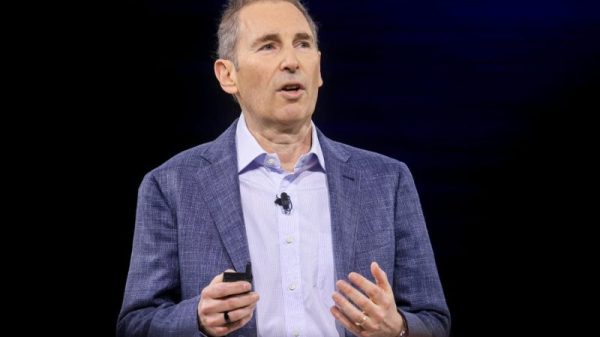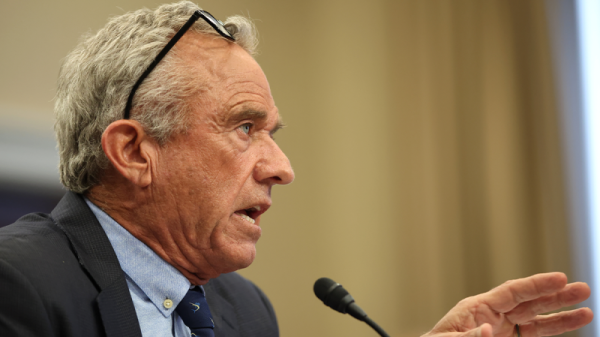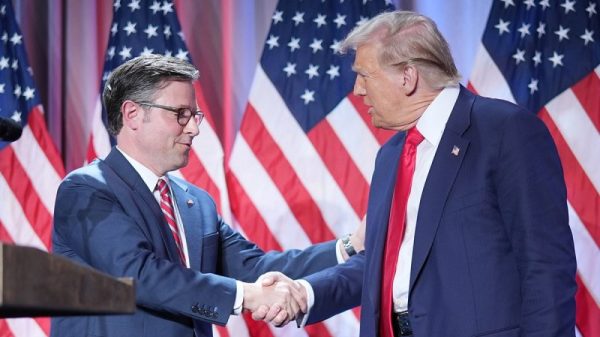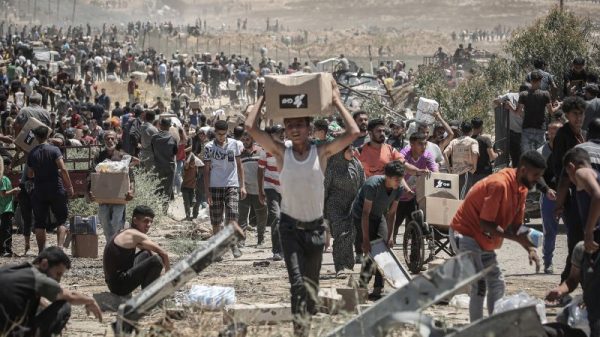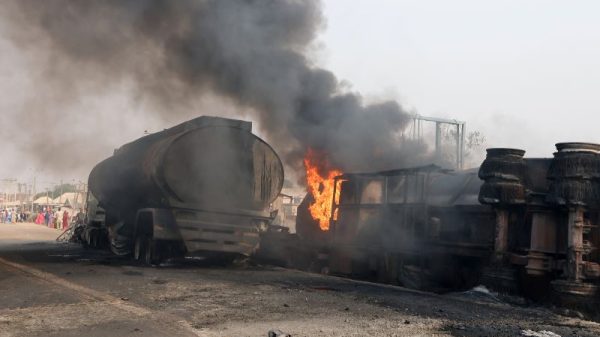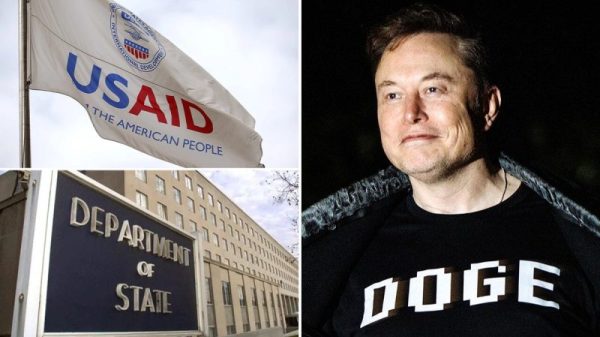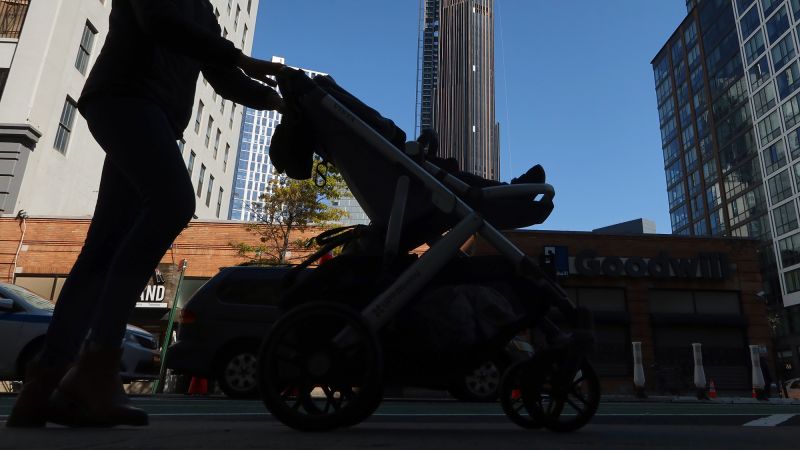Catalina, a 23-year-old US citizen, confidently drives to her job as a nanny and earns a fair wage. Yet her mother – an undocumented immigrant from Peru – has worked in the shadows for 30 years.
The Obama administration focused on curbing interior deportations (as opposed to deportations at the border) and, especially in its later years, on so-called “quick returns” of recent border arrivals who were perceived to have fewer ties in the US.
“A lot of people told her nothing would happen, and indeed, nothing did,” Catalina says, explaining her mother ultimately decided to stay.
However, the harsh immigration policies of Donald Trump’s administration paint a bleaker picture for both. The 23-year-old fears her mother could be detained when she drops off the children of a family she cares for every afternoon to support her own family.
“She’s a single mom. I’m the oldest daughter, so if something happens to her, I’d have to take care of my siblings,” Catalina says. “She had to sign a paper leaving everything to me, just in case: what to do with my siblings, her things, her money. It’s awful to think about, but she feels prepared.”
‘An invisible workforce’
Catalina’s mother has raised her children alone and dedicated part of her life to childcare, a sector facing a deep staffing crisis—one that has worsened in recent months, as experts say immigrants are essential to sustaining it.
According to a report from the National Women’s Law Center, 20% of early educators in the US – an umbrella term encompassing preschool teachers, home-based childcare providers, teachers aids and program directors – are immigrants. Women make up “a significant percentage” of the workforce in this sector nationwide.
“Care work is the work that makes all other work possible and enables all families to thrive,” the report says. However, caregivers face low wages, lack of benefits, vulnerability to exploitation, and job insecurity. Undocumented workers, for their part, also lack basic labor rights and protections.
Although she has lived in the US for years, Catalina’s mother does not have access to work benefits like health insurance or social security.
“She gets paid in cash or by check, but no benefits. Nothing,” Catalina says of her mother’s working conditions.
Every year, undocumented immigrants living in the US pay billions of dollars in taxes even though they know they won’t be able to enjoy the benefits unless their status is regularized.
Additionally, the constant threat of being reported limits her even when accepting jobs. “If a job comes from an American family, I don’t think she’d take it. She’s afraid that if something happens, someone will call the authorities.”
According to Cervantes, immigrant childcare workers “are often an invisible workforce.” Despite their crucial role in the early education of an increasingly diverse child population, they are not sufficiently recognized.
“One thing that often goes unrecognized is that these workers are among the few who are bilingual and culturally competent, particularly in the formal sector, which is highly sought after. Many families want their children in bilingual education programs, and these workers are essential for serving an increasingly diverse child population,” adds the CLASP director.
A childcare system under threat
Beyond the numbers, the tightening of immigration policies under Trump’s administration has directly impacted the reality of thousands of families like Catalina’s.
A few weeks after Trump took office, his administration announced that Immigration and Customs Enforcement (ICE) agents could now make arrests near places like schools, churches, and hospitals, ending a longstanding policy that prevented them from operating in so-called “sensitive locations.”
“And now, in some states where there is greater cooperation with local police, a nanny simply driving to work could be arrested, deported, and separated from her family,” Cervantes notes.
Catalina’s mother experiences that anxiety firsthand every day when she gets in the car to pick up the children she cares for in the afternoons. “When she arrives, there are always police officers managing traffic. Sometimes she hides in the car, doesn’t get out. She waits for the kids to get in the car. It’s awful,” Catalina says. “If I meet her at the school, she feels a little better. But if she’s alone, she doesn’t.”
Without protective policies in place, like the “sensitive locations” policy, it is much harder for nannies to serve families and feel safe continuing their work, Cervantes warns.
“The way immigration enforcement measures are being applied across the country is happening with very little oversight and accountability. More people are becoming vulnerable to deportation because there is no longer prosecutorial discretion, for example, for parents or people with humanitarian reasons not to be deported. There’s no way to prioritize who should or shouldn’t be deported. Everyone is a priority. Therefore, everyone without status is in danger,” adds the CLASP director.
Catalina is currently studying, hoping to build her mother a house in Peru in case she decides to return one day. “Here my mom has no one, no family, no sisters, no mother. Nothing. She’s alone,” she says, but insists she doesn’t want to leave her alone either. “She worries more because she says, ‘My daughter will be left alone.’”
Meanwhile, the Trump administration’s growing push to advance its mass deportation plan could further harm the US childcare system.
“If we lose immigrant workers, especially those who care for our children, as a country we will suffer. If deportations continue at the current pace, if this budget proposal passes Congress—which would allow the administration to further increase its enforcement measures—and if we keep seeing more people lose their immigration status, then this will have a very negative impact on the workforce overall, making it harder for all working mothers and fathers to find childcare and go to work,” Cervantes says.
This is the invisible role of Catalina’s mother: she is the one who allows others to work while their children are cared for. Without her and many like her, the United States would be a very different country.






